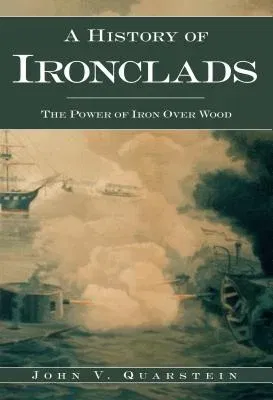John V Quarstein
(Author)A History of Ironclads: The Power of Iron Over WoodPaperback, 28 February 2007

Qty
1
Turbo
Ships in 2 - 3 days
In Stock
Free Delivery
Cash on Delivery
15 Days
Free Returns
Secure Checkout

Print Length
288 pages
Language
English
Publisher
History Press
Date Published
28 Feb 2007
ISBN-10
1596291184
ISBN-13
9781596291188
Description
Product Details
Author:
Book Format:
Paperback
Country of Origin:
GB
Date Published:
28 February 2007
Dimensions:
24.69 x
17.37 x
2.03 cm
ISBN-10:
1596291184
ISBN-13:
9781596291188
Language:
English
Location:
Charleston
Pages:
288
Publisher:
Weight:
703.07 gm